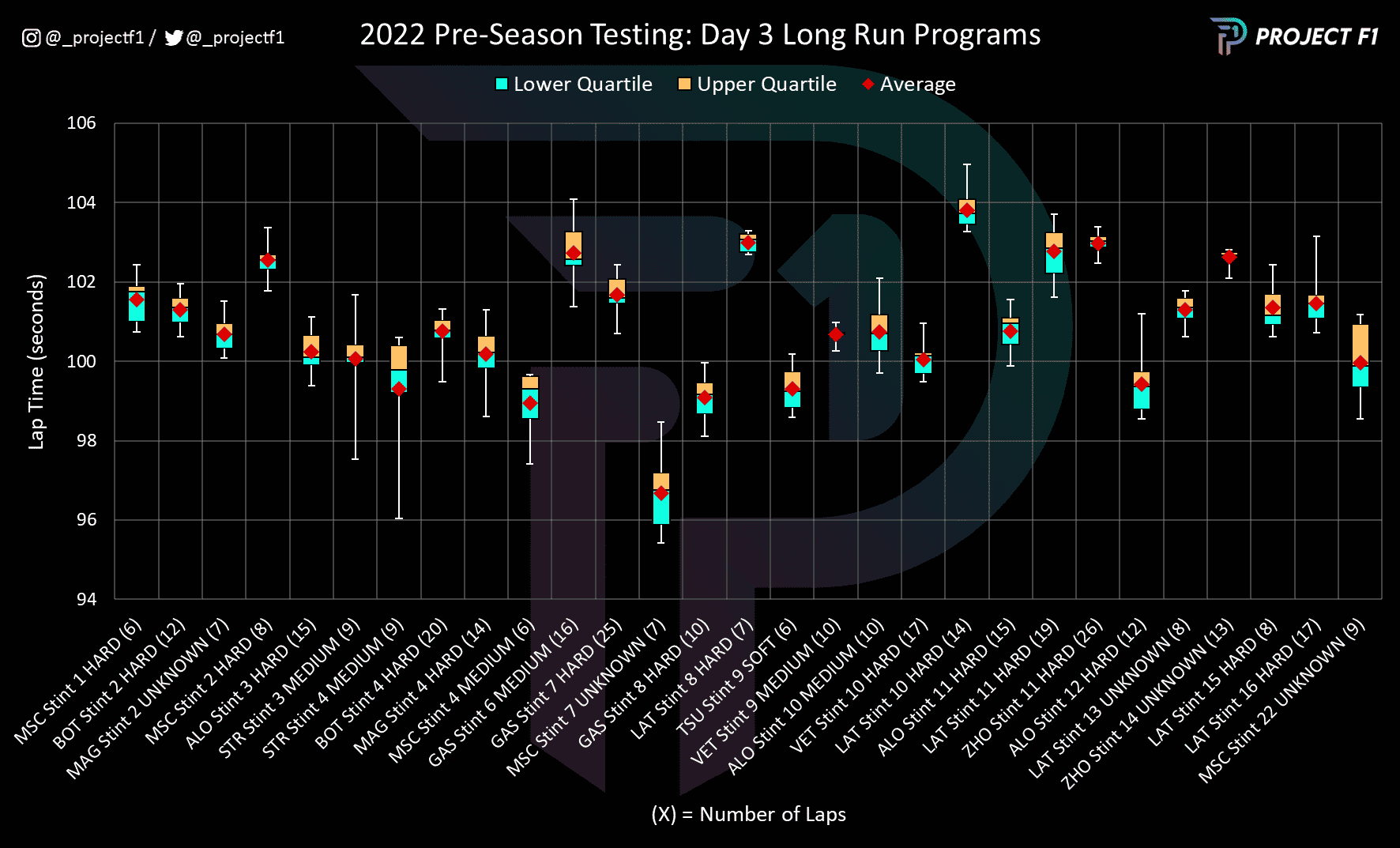F1 testing analysed: The midfielders with hidden pace - and those in trouble
Formula 1's midfield battle was fierce in 2021 but is it about to be closer this season?
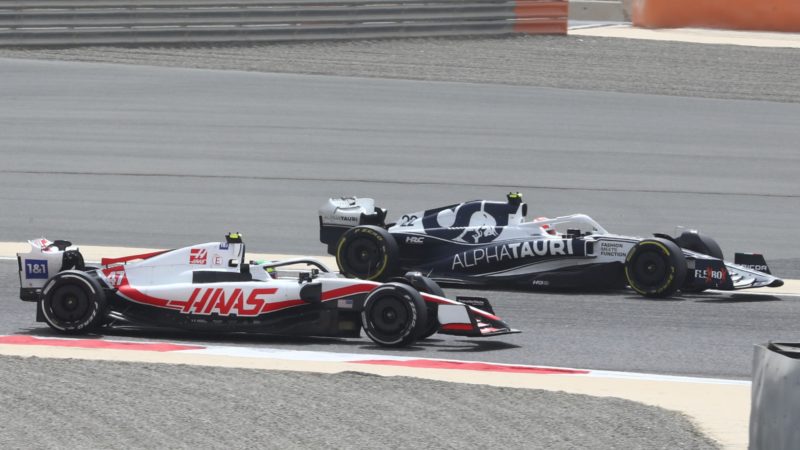
Which of the F1 midfield teams is looking to make the biggest step in 2022?
Grand Prix Photo
Data by Ekagra Gupta, words by Jake Williams-Smith
The time for testing is over and there’s no shortage of question marks over the competitive order heading into this weekend’s Bahrain Grand Prix.
While there’s speculation we could have a four-way battle for overall supremacy at the top of the food chain, F1’s melee in the midfield is equally intriguing as teams start over from a blank sheet of paper.
Last year’s ‘victors’ Alpine have gone back to the drawing board for this year’s power unit while Alfa Romeo has been rumoured to be the only car to meet minimum weight regulations with its C42.
AlphaTauri will be aiming to improve its race performances while Haas can only go forward from where it ended up last year. Hopefully.
Following the Bahrain tests and using a string of six consecutive laps or greater, we can begin to formulate which teams are looking strong in the midfield fight by analysing long runs and race simulations.
Day 1
Long race simulations are difficult to read into, especially on the opening day of testing as teams seek to understand their cars and any potential upgrades installed.
Much of the long run work was limited to the minimum number of laps for this analysis, aside from a few towards the end of the day as track conditions became more representative under the floodlights.
It was an unexceptional first day for the most part as teething problems arose for multiple teams.
Alpine spent more time in the garage behind screens than it would have hoped for, limiting its running time while Alfa Romeo’s Zhou Guanyu brought out the red flags after stopping at the end of the pit lane in the afternoon.
In terms of pace AlphaTauri and Alfa Romeo looked to be starting off stronger than rivals. There could be questions over whether the Honda power unit was turned up though. Pierre Gasly posted almost exactly identical speeds through the trap as Max Verstappen, topping out at 202.5/326kph.
Day 2
Higher temperatures on day two prevented many meaningful race simulations from taking place for much of the day’s running
Haas endured a difficult opening day after freight arrived late and it missed the morning session, but it made up for lost time on day two and topped the times with Kevin Magnussen. The Dane’s long runs weren’t bad either and are a promising point if the fuel and engine modes were indeed on a similar level to the rest. Team-mate Mick Schumacher was also looking competitive.
In contrast to the first day, Yuki Tsunoda was a little further adrift of rivals times though the final run on hard compound tyres was a consistent effort from the Japanese driver.
Elsewhere, Aston Martin quietly went about its business and logged a total lap count well into triple figures. Lance Stroll and Sebastian Vettel completed stints on the medium and hard compound tyres while a late Esteban Ocon effort was an encouraging sign for the Alpine team in desperate need of track time.
Day 3
Finally temperatures dropped and with time running out, the most ‘representative’ race runs happened on the final day on F1 testing.
Once more, AlphaTauri’s productivity continued to seesaw but back into a positive direction. Gasly logged 91 laps single-handedly and pace was back in the ballpark against direct opposition.
The Frenchman’s sixth and seventh stints were some of the longest of the test and part of a full race simulation. The pace drop off on the hard compound tyre, evidenced by the long orange bar in stint seven, might concern the team but his run was conducted while the sun as beating down while rivals opted to wait until the evening to begin their respective runs.
Haas was another team to go early with its race sims and looked to be pushing from the early stages. Whether or not the team is truly a competitive match for cars it got nowhere near last season remains to be seen.
Williams was in recovery mode following the dramatic brake fire and suspension failure from the second day. It was an anonymous effort from Nicholas Latifi on the final day however, looking a little adrift in relation to others.
Low variance in stints for Valtteri Bottas indicates that there is good consistency in the Alfa Romeo but was it running a higher engine mode than rivals?
Once more, Aston Martin and Alpine played cards close to the chest and wouldn’t give much away. From the long runs completed by both teams, Alpine’s Fernando Alonso proved consistent (as you might expect) as did Vettel. The cars look closely matched in the hands of the world champion drivers.
AlphaTauri
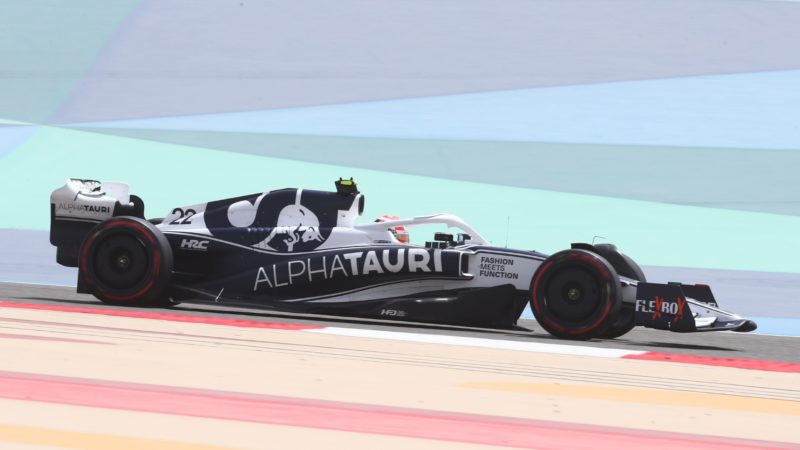
AlphaTauri looked to be holding back in Bahrain
Grand Prix Photo
Pierre Gasly and Yuki Tsunoda will be hoping that AlphaTauri can maintain its qualifying strengths from last season and add race pace to the repertoire for 2022.
“There’s still some work to do from the set-up side, but the engineers have now got quite a good understanding of which direction to take,” team boss Franz Tost asserted after testing had concluded.
“We have a strong package, the car is reliable, we have two very good drivers and the team has made a big step forward.”
Gasly was enthusiastic about the prospect of close wheel-to-wheel racing after following and battling with Lewis Hamilton closely on day three. He was also surprised at how well his AlphaTauri car could keep up with the Mercedes, providing a potential insight into where the team stands heading into the new season.
With Mercedes struggling and potentially behind the top teams if it isn’t crying wolf, might AlphaTauri be the surprise package of the 2022 season when the lights go out in Bahrain?
Alpine
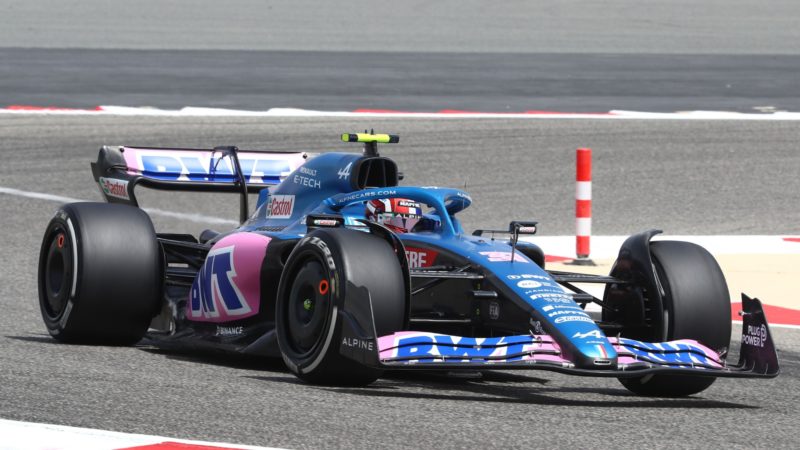
Alpine may be the trickiest team to read on the grid
Grand Prix Photo
A redesigned power unit has been a source of hope for Alpine heading into 2022 with focus at Enstone and Viry set on the new era of Formula 1.
That new era has arrived and the team has stuttered at the start, experiencing several issues across both tests related to reliability, but recovered well on the final day of testing in Bahrain.
Fernando Alonso’s quick lap on the third day put Alpine into the top five by the end of play, but was still a second off what Max Verstappen and Red Bull managed, so it’s unlikely the French team will be finding a similar turn of pace in the short turnaround to the first race.
Despite that, Alonso and Esteban Ocon were able to punch in respectable if not spectacular race stints between them and the team should be near the top of the midfield still come Sunday under the floodlights.
Alfa Romeo
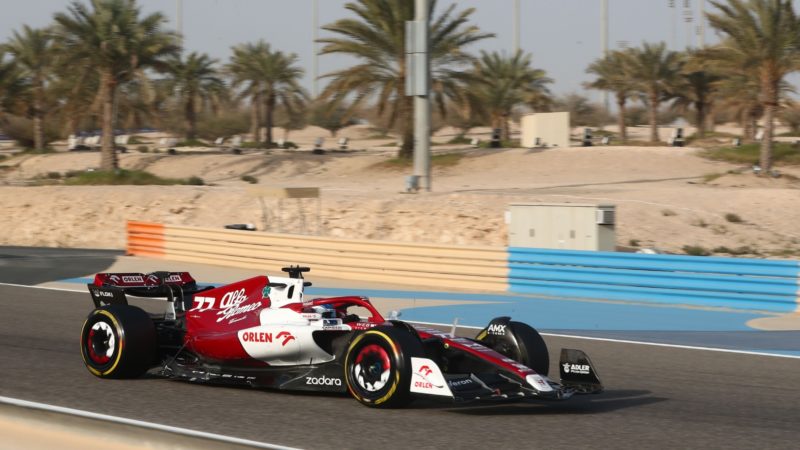
Alfa Romeo struggled to get going but pushed on the final day
Grand Prix Photo
There are concerns at Alfa Romeo around reliability. The team lost several hours’ worth of running time due to on-track stoppages and technical issues, but there may well be underlying pace in the car despite the teething issues.
The team ran with its engines turned up compared to Ferrari and Haas, achieving higher figures through the speed traps compared to the other Ferrari-engined cars.
Valtteri Bottas was cautious in his assessment of the team’s pre-season, admitting that the stoppages had cost the team time and data which could prove vital for the first race weekend of the season.
“There are still a few little issues to be solved but I can really say that the car’s potential is there. We need to make sure we address all issues and make sure they don’t happen again.”
Aston Martin
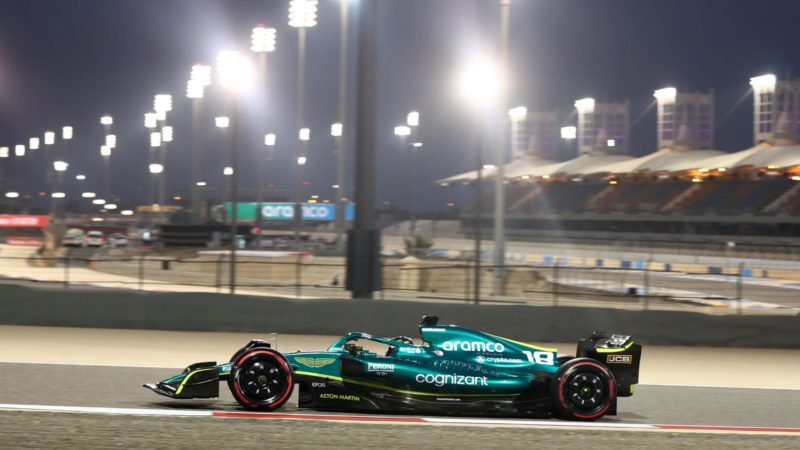
Aston Martin went under the radar in Sakhir
Grand Prix Photo
The preparations for Bahrain at Aston Martin were tricky to read into throughout winter testing.
It has already said that following the six days of pre-season running, the concept it has in the wind tunnel has evolved into something entirely different from that seen at Barcelona and Sakhir.
While the team experienced few if any issues whatsoever during the Bahrain test, the murky picture remains over whether it has the pace to better midfield rivals that showed their hands a little more.
To add to the intrigue, Sebastian Vettel has tested positive in the build up to the first race of the season meaning Nico Hülkenberg will be stepping in as a last-minute replacement without running a single lap in the physical 2022 car.
Hülkenberg has logged plenty of laps on the team’s simulator as part of his reserve driver duties but will Aston Martin be fighting with one arm tied behind its back this weekend?
Haas
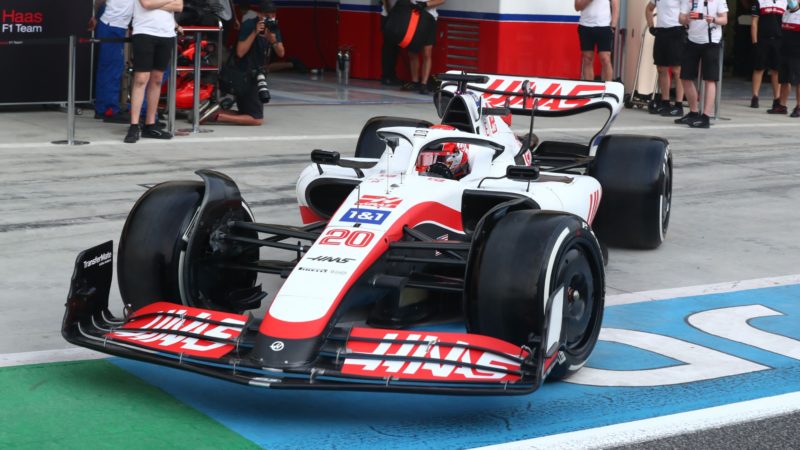
Haas made a splash on day two with the fastest overall time
Grand Prix Photo
After missing the first morning of the Bahrain test due to late arrival of freight, Haas was able to get its full run programme completed, running early on the final day and late into the night on days two and three as recompense.
While Magnussen made the headlines following the extended night session on day two topping the times, Haas showed it has decent underlying pace at least at this early stage of the season.
Having had several seasons to focus on the 2022 regulations at the expense of competitiveness in recent years, the VF-22 looks to be an innovative step forward for the American team.
Time will tell if it’s enough to thrust it into the mix of the midfield battle.
Williams
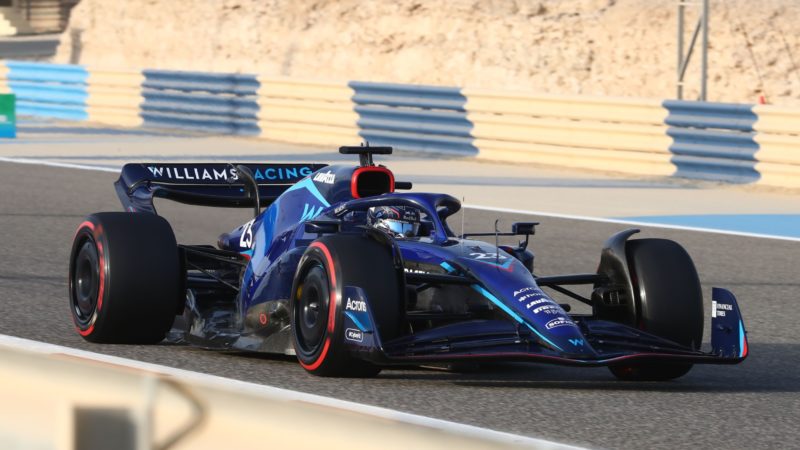
Williams hit a fiery setback on day two
Grand Prix Photo
Jost Capito said there were no concerns over spending this season and breach of the budget cap. The financial department will have winced though after the fire that ended running on day two, caused by something so “stupid” Capito wouldn’t reveal the true culprit.
The team wouldn’t reveal much about its true pace either, but was the Mercedes team that appeared to use the highest engine mode versus the other customer teams.
Capito has been impressed with how Alexander Albon has reintegrated himself into a race team following a year out of Formula 1. He also added that the Anglo-Thai driver’s year on the team side of racing operations at Red Bull has proved an invaluable asset as it aims to move up into the midfield.
Nicholas Latifi’s brake fire on day two curtailed running but the Canadian recorded over 120 laps on the final day in a good recovery for the team. While the team maintains it caught up after the day two setback, there’s the potential that the lost track time could prove troublesome, particularly with the session lost being in conditions similar to the race on Sunday.
Conclusion
AlphaTauri looked conservative without many competitive long run simulations – except a few on day three. The team has been running a similar power level to Red Bull and the speed trap data suggests that the Honda/Red Bull power unit was turned up more than any other on the grid.
Haas and Alfa Romeo seemed to be pushing more on their long run sims. They may have the pace or perhaps AlphaTauri was holding back. While Ferrari itself wasn’t running a very high engine mode throughout the final test, its customers had the wick turned up slightly more. Kevin Magnussen’s session-topping time on day two also came when the track was at its best and long after everyone else had finished running for the day.
Aston Martin and Alpine held back somewhat with both teams in and around the top five throughout the test but not sparking any real moments of intrigue to worry the top-end teams. If anything, the competition from behind has moved a step towards them in terms of pace, and that could be tricky if there’s not much left to come from the AMR22 and A522 respectively.
It looks as though the midfield has certainly closed up though.
Project F1 turns data into graphics that uncover race pace and strategy
See more analysis at @_ProjectF1 on Twitter or @_ProjectF1 on Instagram


